CLINTON — For Barney Wright, dairy farming has always been a way of life.
As a fourth generation family dairy farm, the Wrights have encountered struggles before, but the COVID-19 pandemic has presented various, unique problems.
Barney Wright continues to find solutions to the unique problems, but he has found it difficult to find help.
Beyond it being hard to find help on the farm, the pandemic has made finding drivers for the milk trucks a struggle. Having foreseen the lack of truckers, Wright had previously purchased a new $100,000 tank to store milk, which meant the truckers would not have to be back before the morning milking was completed.
A $200,000 building was also needed to keep the tank. These milk-storing buildings are required to be kept at restaurant-level conditions. They spent an additional $50,000 on an upgrade to their wash system.
On a mission to be as eco-friendly and ethical as possible, while maintaining the quality of milk they historically have produced, Wright has put in place multiple systems and structures. A draining system helps to collect polluted or unclean water and to store it with the manure to avoid the water getting into other systems. With their cow barns, they have special panels and walls that allow for proper air flow. In the winter, it keeps the cows warm and in the summer, it keeps them cool.

Torrey Miller, 4, greets a calf Tuesday while walking through a barn at The Wright Place farm in Clinton. The girl’s mother, Caleigh, walked through the barn with her. Rich Abrahamson/Morning Sentinel Buy this Photo
Wright had taken a step back from working, but in the last three weeks has returned to work due to one worker getting done. Wright does not complain as he explains the situation. He does what he needs to for the farm to continue functioning.
“You won’t find anyone with a better sense of humor than my dad’s,” said Caeligh Wright, his daughter. “He’s pretty laid back, there’s not much that gets him worked up which is good because in this line of work there are a lot of things that can get under your skin if you let them. Farming truly is his passion and he has dedicated himself to this farm for most of his life. It’s not just a job to him, it really is a way of life, he eats, sleeps and breaths all things farm.”
Brian “Barney” Wright was born on Feb. 4, 1964. Growing up with his brother and two younger sisters, he learned the way of the farm early on. His parents, Samuel and Nancy, instilled a strong work ethic and compassion into their children from a young age.
In 1987, when he was 24 years old, Barney married Bridget McDonough. Together they had a daughter, Caleigh, who is now married to Andrew Miller. The two have Barney’s only grandchildren, Torrey and Henry.
BUSY OPERATION
The Wright Place farm was established in 1956.
The approximately 3,000-acre property has 702 milking cows and 102 dry cows. The cows are housed in shelters with concrete floors covered in sand. Barney Wright explained while moving the sand with a front loader that sand is better for the cows than sawdust. Sand provides traction for the cows and can be used for them to cool down.

David Torres Hernandez attaches a milking machine to a cow’s udder Tuesday at The Wright Place farm in Clinton. Rich Abrahamson/Morning Sentinel Buy this Photo
Across from the sand pile is a little pond. A muskrat and a couple of ducks started to swim.
“The wildlife is for my nieces and nephews,” Wright said with a smile during a recent visit to his farm. This applies to the seven horses they have, too. Family is a constant theme on this dairy farm.
Along with cows, there is a chicken barn on the property. Wright’s son-in-law, Andrew Miller, was headed to tend to the chicken barn and stopped to give Wright a rundown on the status of the farm. Miller is one of the 18 primary workers on the Clinton farm. In the newer Pittsfield location, there are about six workers.
Flood Brothers Farm, a 1,600-cow dairy farm with 43 employees also located in Clinton, has also been experiencing hardships from the pandemic.
Farm family member Jenni Tilton-Flood said, “one of the biggest things we have learned is how much we rely on our community, and how much the community relies on us.”
Tilton-Flood said over the last 18 months there had been various impacts from the virus, but the lack of sanitary products and gloves is a consistent one. The gloves they need are now nearly triple the price they were before COVID-19.

Barney Wright, left, watches Tuesday as his grandson Henry Miller, 2, and daughter Caleigh walk to his tractor during hay baling at The Wright Place farm in Clinton. Wright’s granddaughter Torrey, 4, is shown at the right. Rich Abrahamson/Morning Sentinel Buy this Photo
Since 1956 the Wright family has had a presence in central Maine, and has been credited with contributing much to the neighboring towns. The dairy farm has managed to survive various struggles, especially COVID-19.
When he speaks to those around him, it is clear Wright loves his family and how much he values them. There is adoration in his eyes as he talks to his wife who hands him their grandson, Henry. At 2 1/2 years old, Henry looks like his grandpa and already shows signs of wanting to learn the family trade.
“He would be the fifth generation, if he comes to fruition,” Wright said, Henry sat on his lap. He beams with pride as he shares how Henry imitates planting corn and feeding cows.

Barney Wright drives a tractor as his grandson Henry, 2, rides while baling hay at The Wright Place farm in Clinton on Tuesday. Rich Abrahamson/Morning Sentinel Buy this Photo
Wright hopes that farming tradition he passes on is also one that’s increasingly ecologically friendly.
As for their cow feed, the Wrights are very particular with what the cows consume. Mixtures of beet pulp, grain and alfalfa are common because it helps them ensure the cows get all the nutrients they need. Other feed is a soybean mix. Additionally, each cow has a collar, USDA ear clip, and is chipped, which makes tracking milk production possible. There is also special feed for pregnant and nursing cows, as they need additional nutrients.
When calves are young, they stay in special nursery barns. When the calves are in the nursery, they get little jackets to help them stay warm and to not exert themselves. The calves are kept with no more than four to a pen. Between calves, they remove and wash the pens to “break any potential negative ecological cycle,” said Barney.
Copy the Story LinkSend questions/comments to the editors.


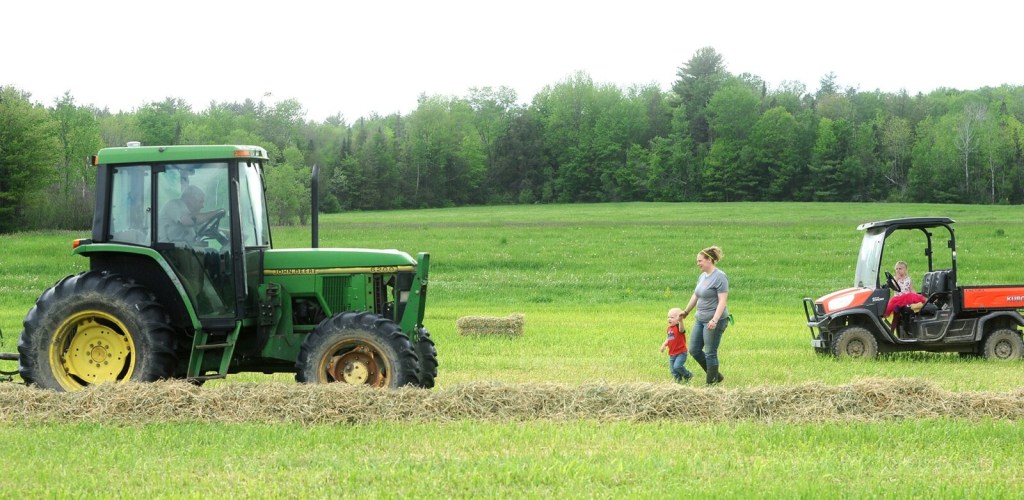
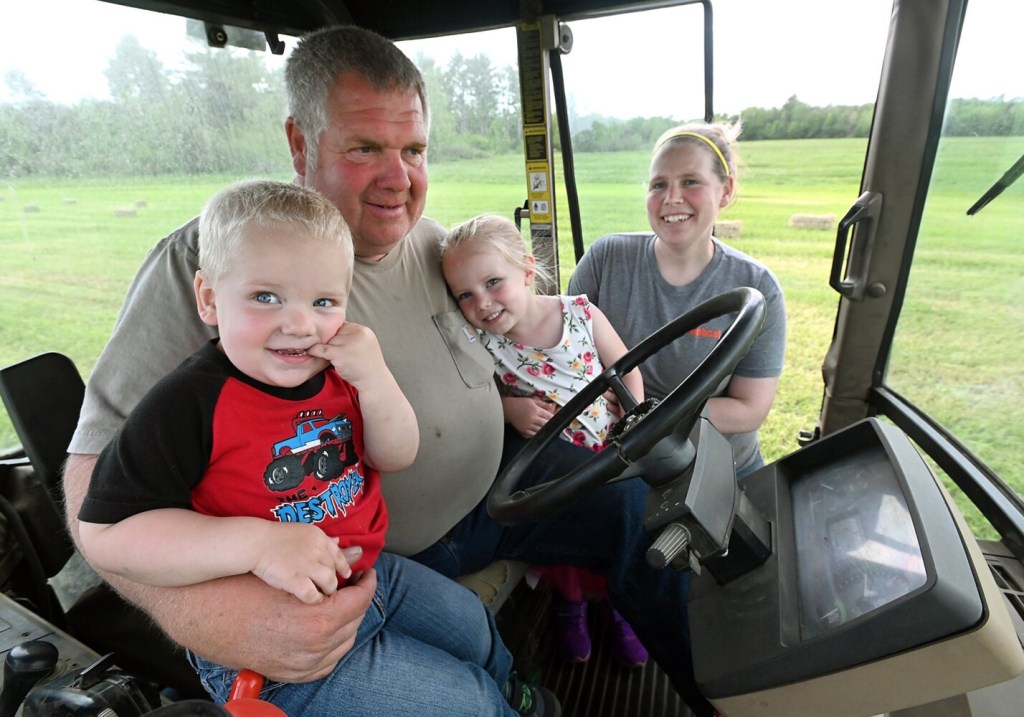
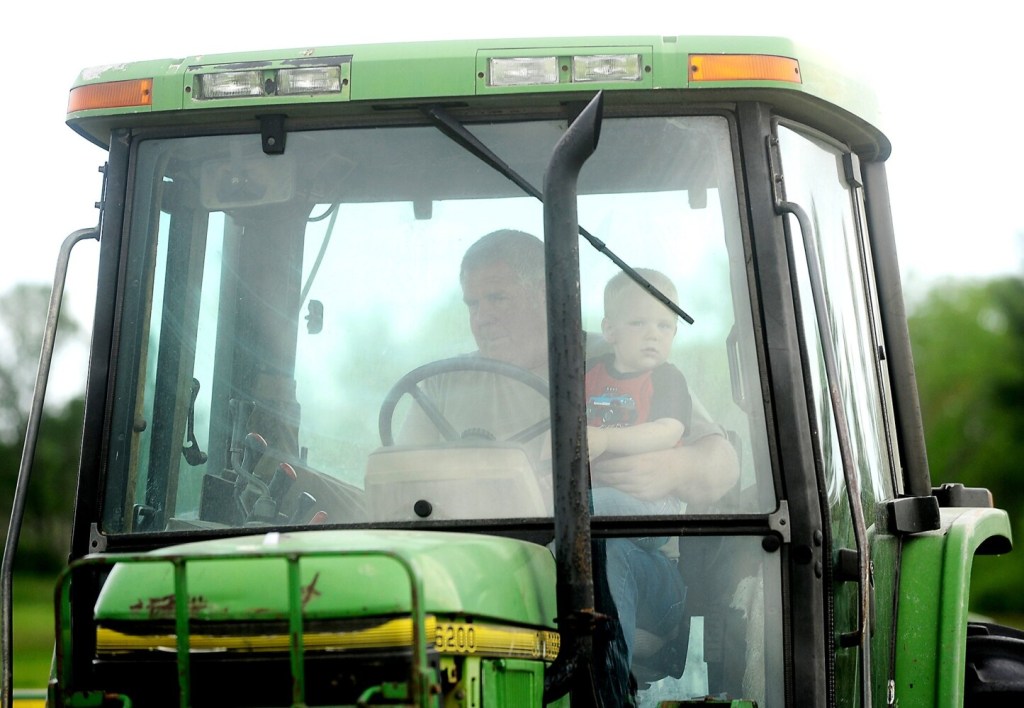
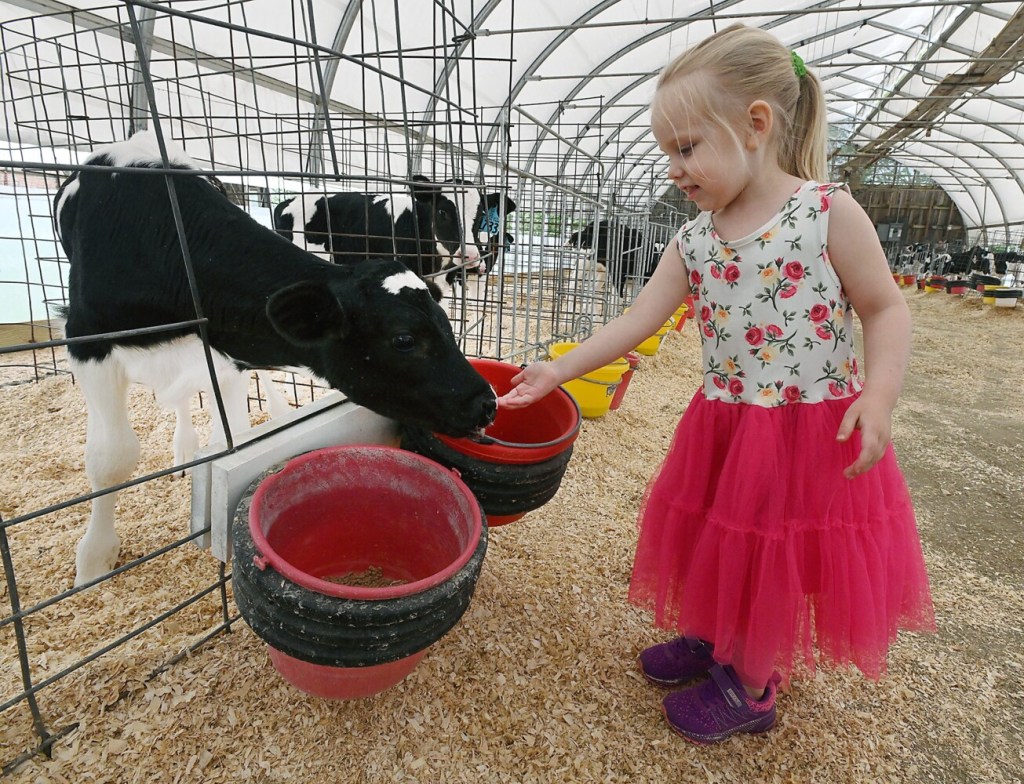
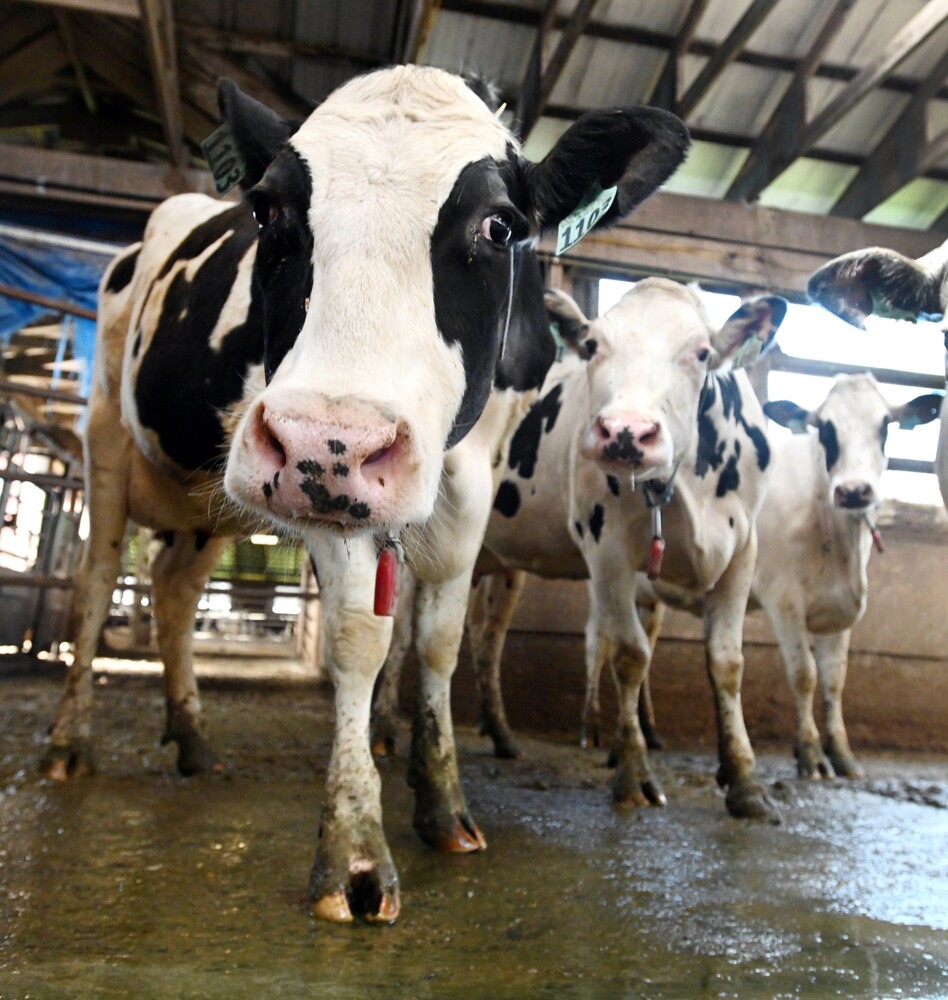
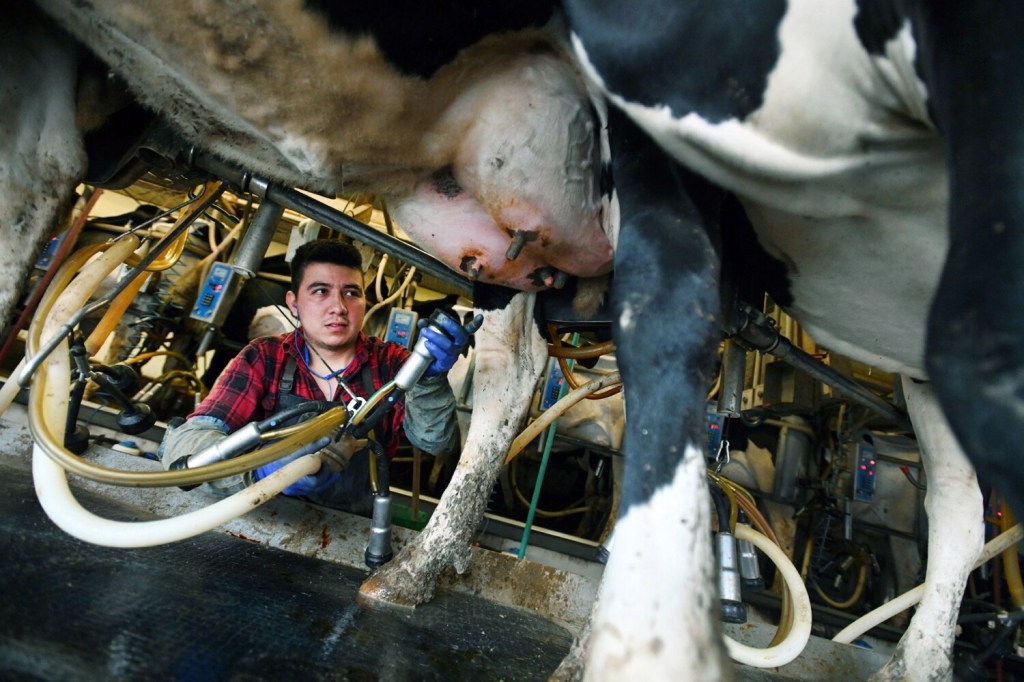
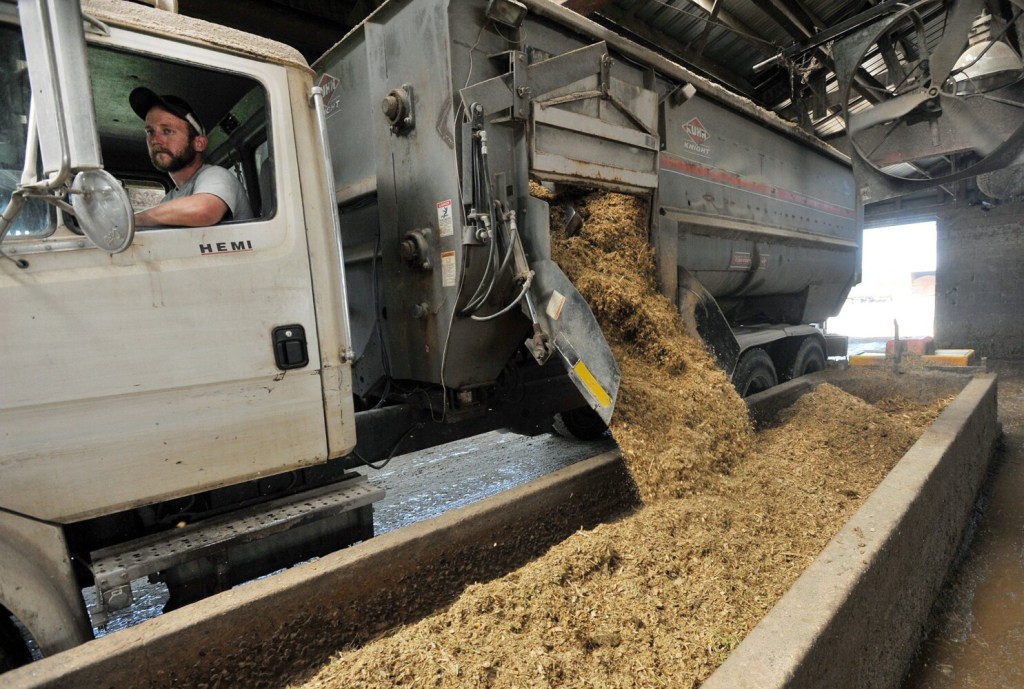
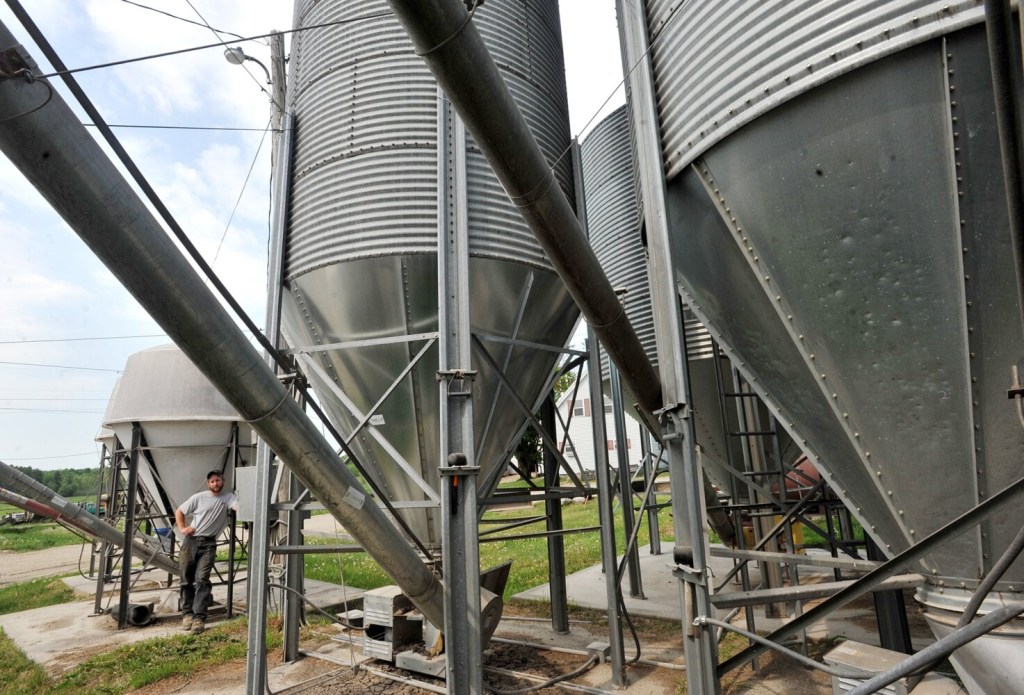
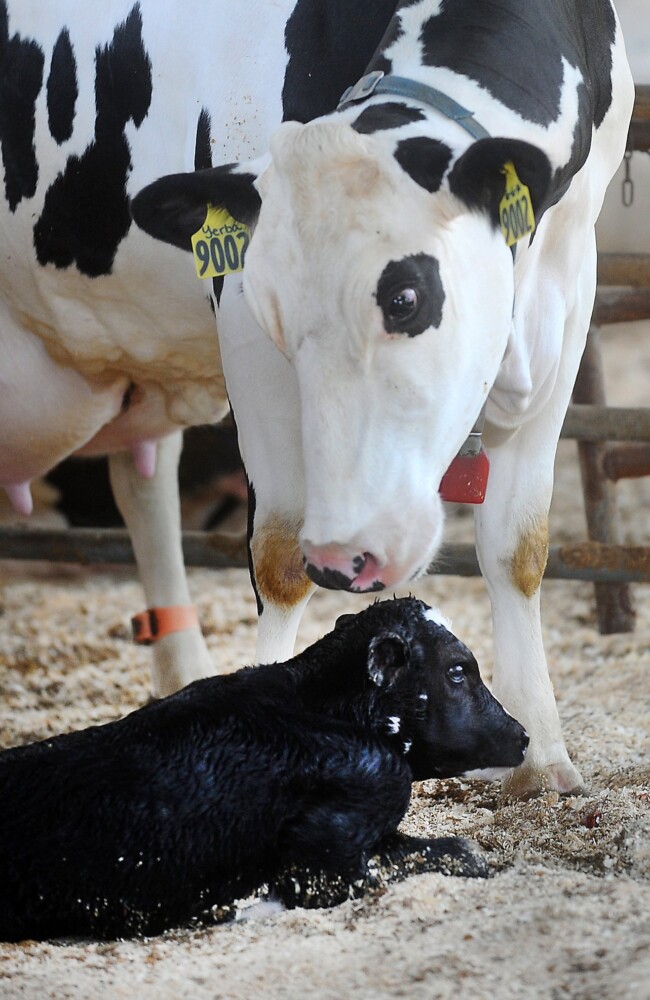

Success. Please wait for the page to reload. If the page does not reload within 5 seconds, please refresh the page.
Enter your email and password to access comments.
Hi, to comment on stories you must . This profile is in addition to your subscription and website login.
Already have a commenting profile? .
Invalid username/password.
Please check your email to confirm and complete your registration.
Only subscribers are eligible to post comments. Please subscribe or login first for digital access. Here’s why.
Use the form below to reset your password. When you've submitted your account email, we will send an email with a reset code.